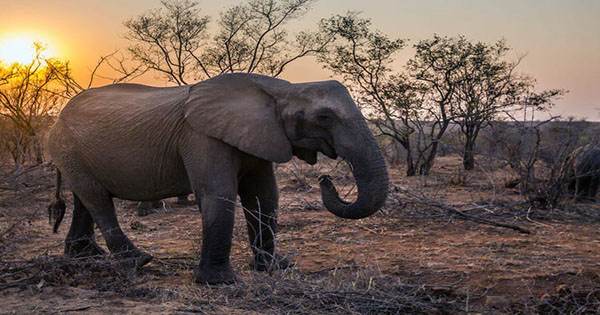It is no secret that human activity has a significant impact on the environment, but the manner in which humans influence the evolution of creatures in our immediate vicinity can be more subtle. Poaching proved to be a significant enough evolutionary pressure for a population of African elephants (both species are now listed as endangered) in Mozambique, according to new research, causing natural selection to favor tusklessness over animals with the adapted teeth that are so highly sought after in the illegal wildlife trade. The study, which was published in the journal Science, focused on the impact of ivory poaching on a group of African savanna elephants (Loxodonta africana) in Mozambique’s Gorongosa National Park during the Mozambican Civil War, which lasted 15 years from 1977 to 1992. Because warfare has traditionally been linked to an increase in poaching in countries across Africa, is thought to be a period of particular relevance in examining the potential impacts of wildlife exploitation on evolution.
To examine how the war affected the park’s elephant population, the researchers used field and survey data, as well as archival film footage and current sighting data. The fight took a huge toll on the Gorongosa National Park’s large herbivores in general, with populations dropping by 90% during the 15-year conflict. The number of African elephants began to rapidly decline as soldiers on both sides used the chance to hunt for ivory, and researchers noticed a threefold increase in tuskless female elephants, from 18.5 percent to 50.9 percent. The researchers dug deeper to figure out why this would be and discovered survey data indicating that a specific gene plays a key role in tusk inheritance patterns. AMELX and MEP1a, both of which play a role in mammalian tooth formation, were two possible suspects.
For two reasons, AMELX is a very intriguing candidate. To begin with, it is an X-dominant, male-lethal characteristic, which indicates that male embryos are unlikely to survive pregnancy since they lack a second X chromosome to oppose the AMELX loci, unlike females. Second, it is known to slow the growth of maxillary incisors (the tooth that most closely resembles elephant tusks) in humans, thus offering a method by which genetic alterations in the population resulted in an increase in tuskless females. The authors of the study wrote, “Understanding the evolutionary ramifications of wildlife exploitation is becoming increasingly crucial as harvesting grows more effective.” “This work provides evidence for quick, poaching-mediated selection in a keystone species for the loss of a notable morphological characteristic.”













